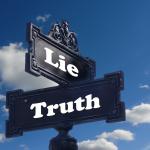Thought experiment: Imagine you’re waiting in the exam room for your annual physical to begin when your doctor walks in with a cigarette hanging out of his mouth.
pesticide
During the COVID pandemic, federal officials pressured social media platforms to censor information they deemed a threat to public health.
Once a trusted institution that disseminated science-based guidance to pediatricians and parents, the American Academy of Pediatrics (AAP) has devolved into an activist group that parrots agitprop from NGOs like Greenpeace.
Activist groups utilize a well-worn set of propaganda tools to turn the public against pesticides. These range from funding junk studies to buying favorable media coverage and filing endless lawsuits against chemical manufacturers.
Join our directors of bio-sciences and medicine, Cameron English and Dr. Chuck Dinerstein, as they break down these stories on episode 27 of the Science Dispatch podcast.
Public trust in media is near an all-time low.
“Since my kids at the time were basically mainlining apple juice and applesauce, and I was fairly celebrated for my pies, this did alarm me,” Streep said.
Almost three decades ago, activist groups began making all sorts of troubling predictions about the dangers of growing genetically engineered (GE) crops.
If glyphosate is such a deadly pesticide, why do activist groups have to lie about it?
Join ACSH directors of bio-sciences and chemistry Cameron English and Dr. Josh Bloom as they break down these stories on episode 17 of the Science Dispatch podcast:












